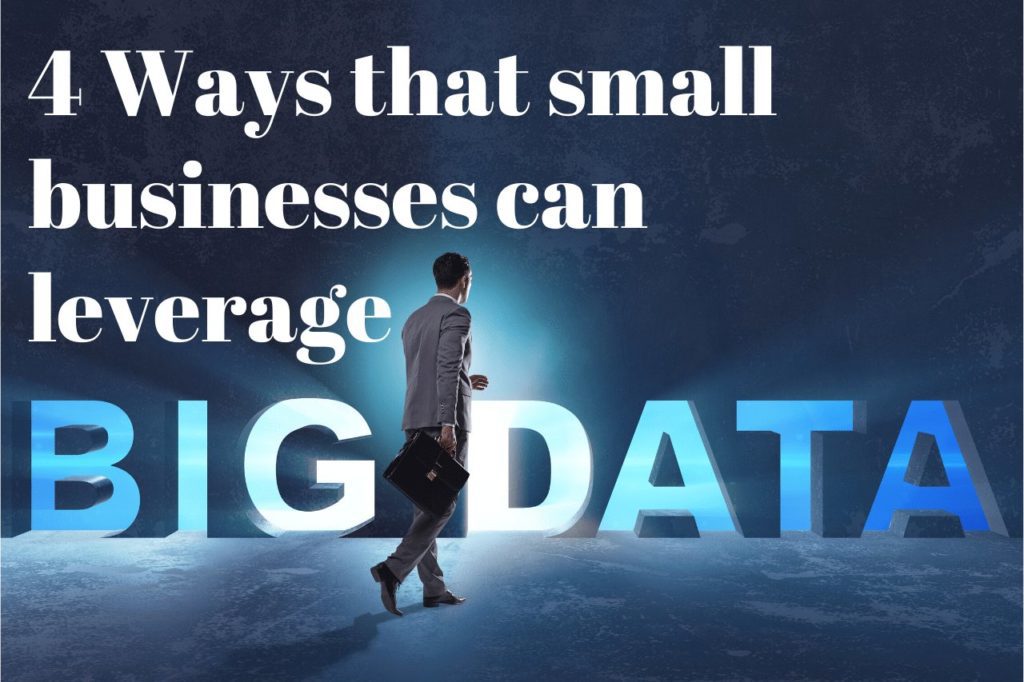Data is all around us today, and even the simplest of businesses generate a considerable amount of data on a daily basis.
Of course, not every business is actively monitoring or recording that data, but it is there nonetheless. In many cases, a business’s lack of interest in the data that they are generating is due to them seriously underestimating the value of that data. Even a simple dataset can provide a business with profound insights into the operations and the current health of their organisation.
You don’t need to be a business with access to special equipment or tools in order to leverage the power of big data. Even small businesses can utilise data in a number of important ways. Below are four of the most significant advantages to small businesses that utilise data analytics.
Gain Deeper Insight into Your Audience
The better your understanding of your target audience, the easier it will be for you to market to them effectively. Every business should know the demographic of their target audience, as well as the demographics of those who are actually using their business. In some cases, businesses find themselves courting a particular audience, but inadvertently hitting a home run with a completely different group of people.
The more data you are able to gather about your customers, the deeper your understanding of them will be. You should be aiming to go far beyond simple demographic information – you don’t just want to know the age and gender, for example, of your audience. With the right data on your side, you can learn what makes your customers tick, and thereby gain deeper insight into what they want from your business.
For small businesses, this allows for much more cost-effective marketing. It also makes it easier to craft messaging that is going to resonate with your target audience.
Identify Trends
A business that is able to anticipate the next big trend amongst its customers can get ahead of the curve and steamroll over their competition. Once a trend is in full swing, any business can jump on the bandwagon and take advantage of it. However, if you are reacting to trends rather than pre-empting them, you are not going to have that all-important advantage over your competitors.
On the other hand, if you have a comprehensive data policy that ensures you are constantly monitoring what your customers, and the market more broadly, are looking for, then you can identify emerging trends long before your competitors have caught a whiff.
Of course, in order to achieve this, you will need more than just data – you also need people who are able to properly interpret and analyse that data. This article from Aston Online provides some useful insight into the roles of a data scientist and business analyst – two distinct but intimately entwined fields of study.
Scope Out Your Competition
Big data is very useful for understanding your own business and the effectiveness of your current strategies, but it is also a powerful technique for gaining a better understanding of your competitors. The more you know about your competition, the easier it is to outmaneuver them and the less chance there is of them taking you by surprise.
Not only does analysing data about your competition enable you to better understand them, but it can also provide you with extremely valuable insight into what your customers are looking for. Assuming that you and your competitors are targeting the same audience, observing how they react to your competitor’s marketing campaigns gives you the opportunity to either emulate their approach or to avoid it entirely.
If you aren’t taking advantage of data analytics techniques in order to better understand the businesses that you are competing with, you can be sure that they will be taking advantage of it and potentially running rings around you as a result.
Improve the Efficiency of Your Operations
In business, there is a very strong correlation between efficiency and profitability. If your business, or even one individual component of your business, is being managed inefficiently, then you are inevitably going to be wasting time and money that you could put to much better use.
By identifying your key performance indicators and ensuring that you gather the relevant data for them, you can accurately measure the effectiveness of your current strategies and, if necessary, adjust them to improve your efficiency.
The potential power of data is far too great to ignore, even for a small business. Whether you want to gain deeper insights into your own business, a competing business, or your target audience, big data techniques can help you to achieve these goals. Just because you are a small business, that doesn’t mean you can’t think like a larger organisation when it comes to your data.





